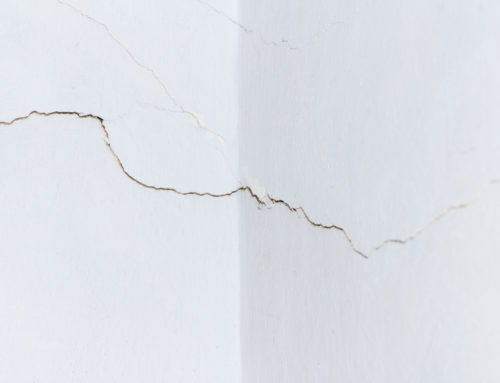Expansive clay soil poses a significant threat to your foundation because it expands and contracts dramatically with changes in moisture. Homes built on expansive soil, common in areas like Arlington, Fort Worth, and Grapevine, Texas, are at higher risk for foundation issues. The swelling and shrinking of the soil puts constant pressure on your foundation, leading to cracks, uneven settling, and structural damage.
What Is Expansive Clay Soil?
Expansive clay soil is a type of soil that reacts dramatically to moisture changes. When the soil gets wet, it swells, and when it dries out, it shrinks. This movement can be problematic for foundations because the soil beneath and around the foundation is always shifting. Homes in North Texas are particularly vulnerable to expansive soil because the region’s clay-heavy soil is notorious for swelling during the rainy season and shrinking during dry spells.
The constant expansion and contraction put your foundation under stress, often resulting in cracks or shifts in the structure. Over time, this movement can cause uneven settling, which can lead to significant structural damage if not addressed.

Why Expansive Soil Is Dangerous to Foundations
Expansive clay soil is dangerous to foundations for several reasons. The most notable threat is the movement caused by moisture fluctuations, which leads to foundation shifting and settling. As the soil expands during wet periods, it pushes against the foundation, causing it to lift. When the soil dries out, it shrinks, and the foundation may settle unevenly. This repeated cycle of movement puts stress on the foundation, leading to cracks and potential structural damage.
In regions with extreme weather changes, like the Dallas-Fort Worth area, these cycles can happen frequently. Homes are particularly vulnerable during droughts, where dry spells cause the soil to shrink excessively. Once the rain returns, the soil swells back up, causing even more movement beneath the foundation. This ongoing expansion and contraction can lead to major issues, such as cracks in walls, floors, and ceilings, and even doors and windows that don’t close properly due to shifting frames.
Poor drainage is another issue that compounds the effects of expansive soil. If water isn’t properly diverted away from your home, it can accumulate around the foundation, leading to even more swelling. When this happens, the foundation is put under more pressure, which can result in cracks or movement.
Recognizing the Signs of Foundation Damage From Expansive Soil
Identifying the early signs of foundation damage caused by expansive clay soil is essential for preventing more serious problems down the road. If you live in an area with expansive soil, paying attention to these warning signs can help you address issues before they worsen.
One of the most common signs of foundation damage from expansive soil is cracks in the foundation or walls of your home. Cracks can appear inside or outside and often form in a stair-step pattern, especially around doors, windows, or corners. Horizontal cracks are usually more concerning than vertical ones, as they often indicate significant foundation movement.
Another sign to watch for is uneven floors. As the foundation shifts, it can cause parts of your floor to sink or become uneven. If you notice sloping floors, this could be a sign that the foundation is settling unevenly due to soil movement.
You might also notice doors and windows that are difficult to open or close. As the foundation shifts, the frames of doors and windows can become misaligned, causing them to stick or not close properly. Gaps between the walls and floors or between the walls and ceiling are also common indicators of foundation movement.
How to Protect Your Foundation From Expansive Soil
While expansive soil poses a significant threat to your foundation, there are steps you can take to minimize the risk. By managing the moisture levels around your foundation and taking preventive measures, you can help protect your home from the damaging effects of shifting soil.
Proper drainage is one of the most important things you can do to protect your foundation from expansive soil. Make sure that water is being directed away from your foundation by installing gutters, downspouts, and French drains if necessary. Keeping the soil around your foundation evenly moist is also important. Soaker hoses or drip irrigation systems can help maintain consistent moisture levels, especially during dry periods.
Foundation watering is another effective strategy. By watering the soil around your foundation during dry spells, you can prevent the excessive shrinkage that leads to foundation movement. Using a soaker hose around the perimeter of your home allows the soil to stay moist, reducing the chances of it shrinking away from the foundation.
Additionally, installing root barriers can prevent trees and other plants from affecting the moisture levels in the soil around your home. Tree roots often seek out moisture, which can cause the soil to dry out even more, leading to foundation movement. Root barriers can stop roots from getting too close to your foundation, helping to stabilize the soil.
Warning Signs That It’s Time to Act
If you’ve already noticed signs of foundation damage caused by expansive soil, it’s important to act quickly. Ignoring these issues can lead to more costly repairs down the line.
- Cracks in your walls: Look for cracks that form around doors, windows, and corners.
- Sloping or uneven floors: A noticeable tilt in your floors is a sign that your foundation is shifting.
- Gaps between walls and floors: Gaps or separation between different parts of the structure indicate movement.
- Sticking doors and windows: Doors and windows that won’t open smoothly or won’t latch could mean the foundation has shifted.
Get the help you need from Discount Foundation Repair Specialists. If you suspect your foundation is being affected by expansive clay soil, we offer expert repair services in Arlington, Fort Worth, and Grapevine. Contact us today to protect your home from costly foundation damage.





